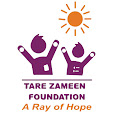Parenting
is the activity of bringing up a child as parents where the parents are
responsible to provide the food, clothing, shelter, education, medical care
insofar as their ability to do so. A child's physical, emotional, social,
intellectual development also lies under the responsibilities of parents.
Parenting varies from place to place and individual to individual. It can be
done being in a family or being alone with the child and acting as a single
parent as well.
According
to the UN Women report published in Times of India, it was found out that 12.5%
of the total number of families, are single parents. And globally it turns out
that over eight of every ten lone-parent households are headed by women.
Single
parenting is where a person lives with a child or children and does not have a
spouse or live-in partner. The reasons behind being a single parent include
divorce, break-up, abandonment, death of the other parent, childbirth by a
single woman or single person adoption. Single parenting is assumed to be
strenuous, after all bringing up a child is a major responsibility.
While
being the only support to the child may make his/her future insecure. In such
conditions, the child as well as the parent start feeling alone because of the
lack of backbone to their lives. And the children brought up in single-parent
families are not so friendly and are very close to committing mistakes as they
don't have many people to look after them. Extra love and care of the parent
sometimes also result in an indisciplined child that takes the child on the
wrong path and there are risks of getting the child involved in drugs and other
unpleasant activities.
But just
like the two sides of a coin, it too has its own pros and cons. The more
difficult it is, the more are its benefits as well. As the parent is the only
person to command so the parent can control and bring up the child as they want
to, the child respects and values the parent and their decisions. The other
benefits are provided by the government to single parents in the way of
financial support, universal credit, statutory sick-pay, housing benefits, etc.
The child also enjoys such kind of parenting as they get complete and undivided
attention, love, and care. A family is where a child is brought up being with
both the parents and sometimes also with their uncle, aunt, grandparents, and
siblings.
Family is
supposed to be one of the most important influences in a child's life and the
way of communication between him and his parents becomes its inner voice. It
teaches unity, respect, sharing emotions, and good values. A child brought up
in a family has a more friendly nature and is prepared for the big world
outside. It also provides financial security to the child, when needed, and
unconditional love by all the members of the family.
The
feeling of togetherness is built in the child because of which they do not face
many behavioral problems while working in teams, meeting new people, and
adjusting with them.
These
children have a fear of the family members which stops them from indulging in
the wrong activities and because of the guidance of more than one person these
children are full of values and are more sensible, responsible, and wise in
their decisions and acts.
Thus,
every sort of family aims for the betterment of the child and their future.
However,
children staying with family have a more secure and better future and have the
probability of doing good in the future. Whereas, in the case of single-parent
family, it's quite difficult. So, it can be concluded that families have a
major and important role in the upbringing of children.








0 Comments